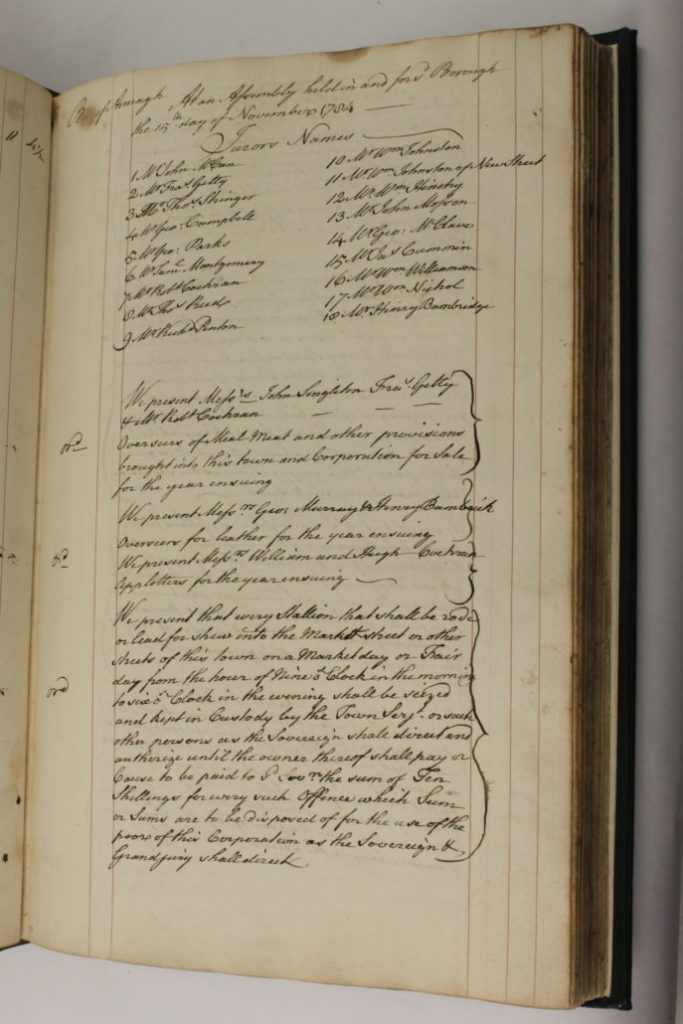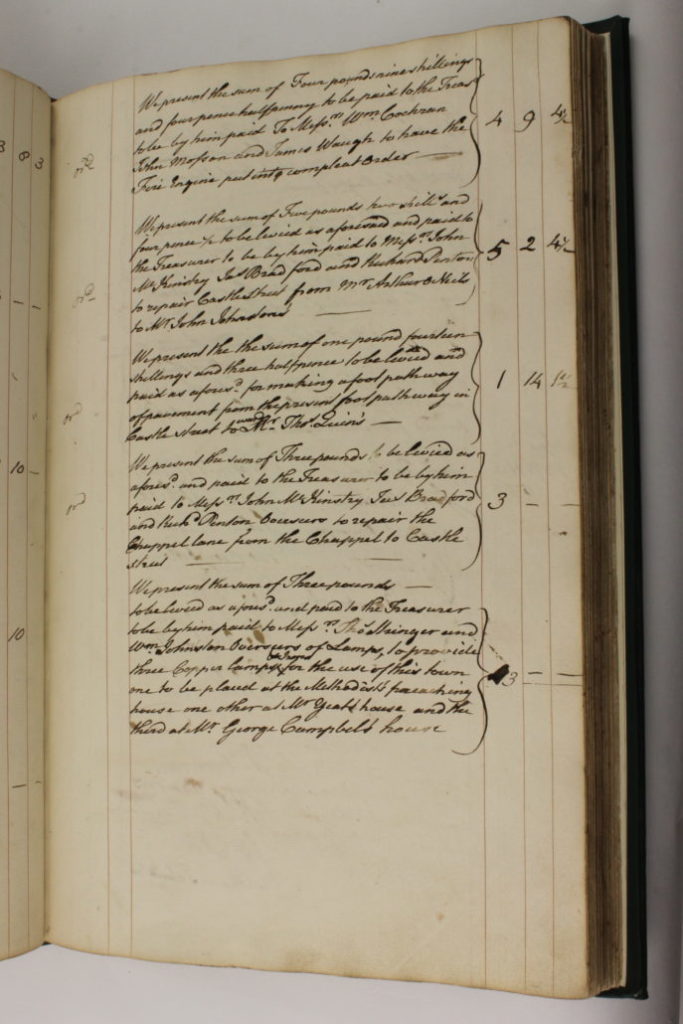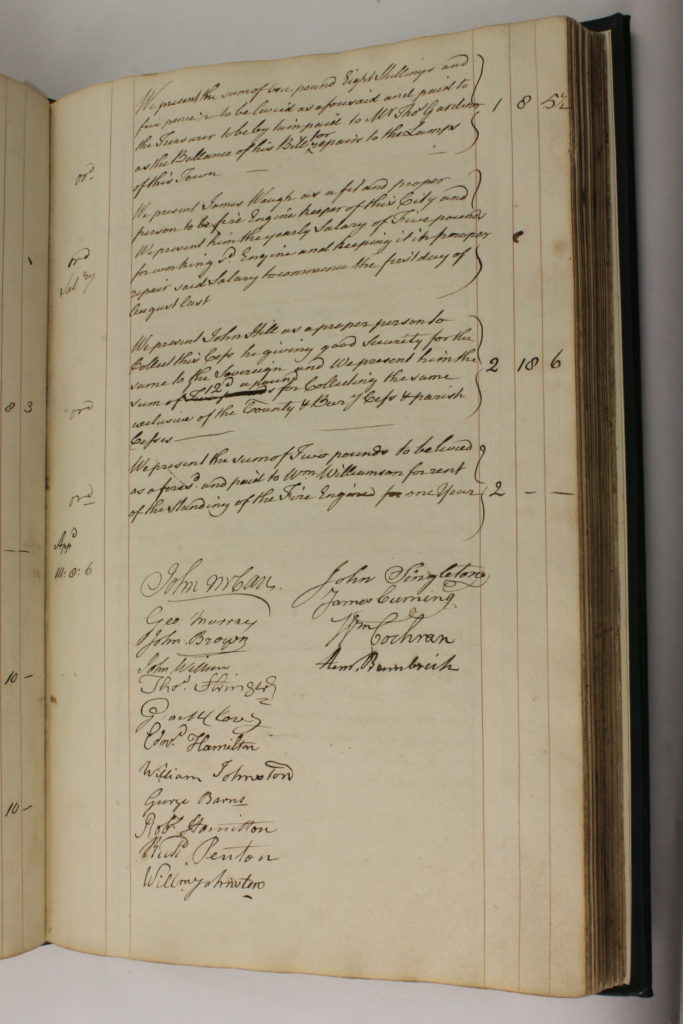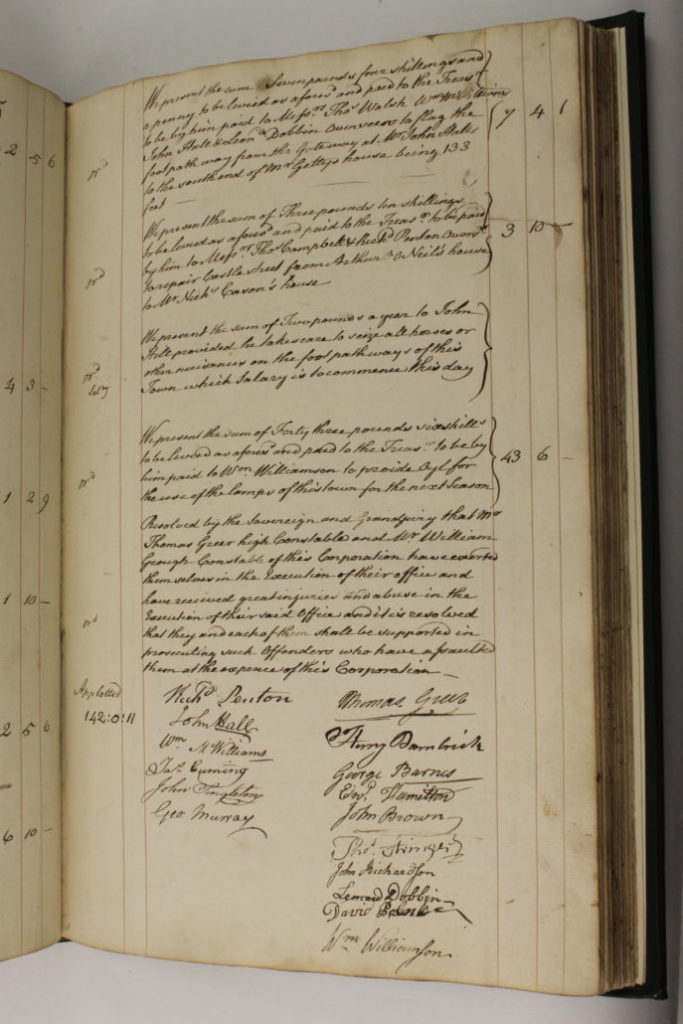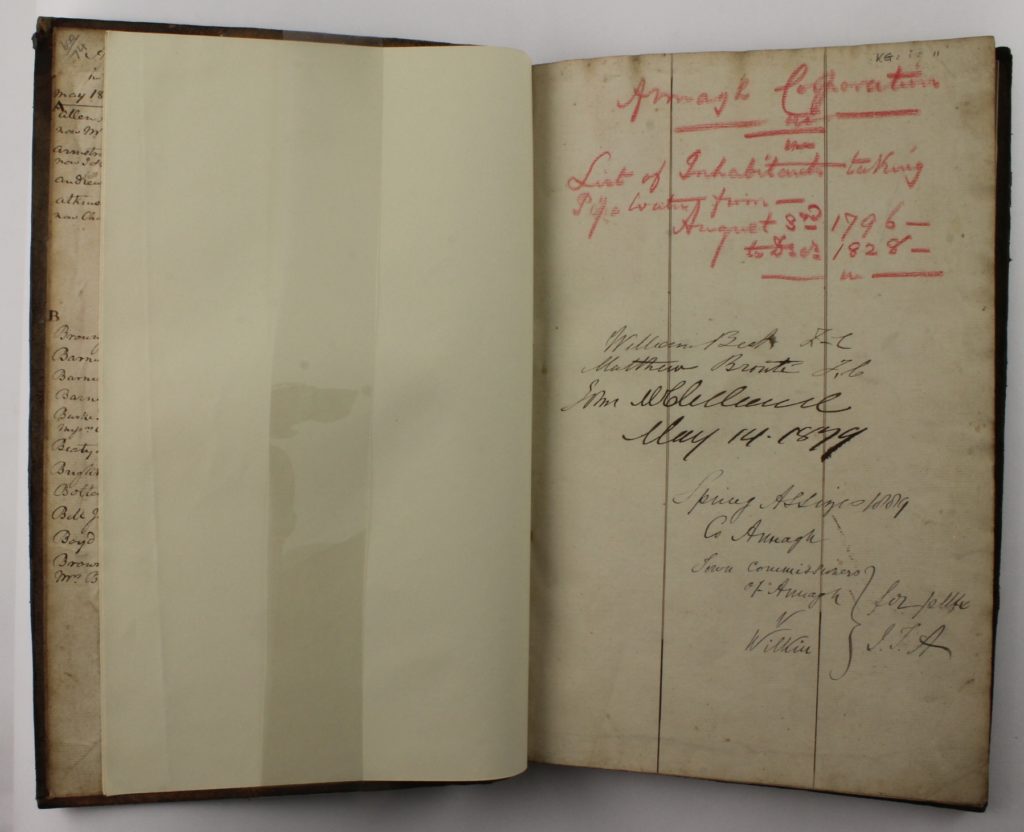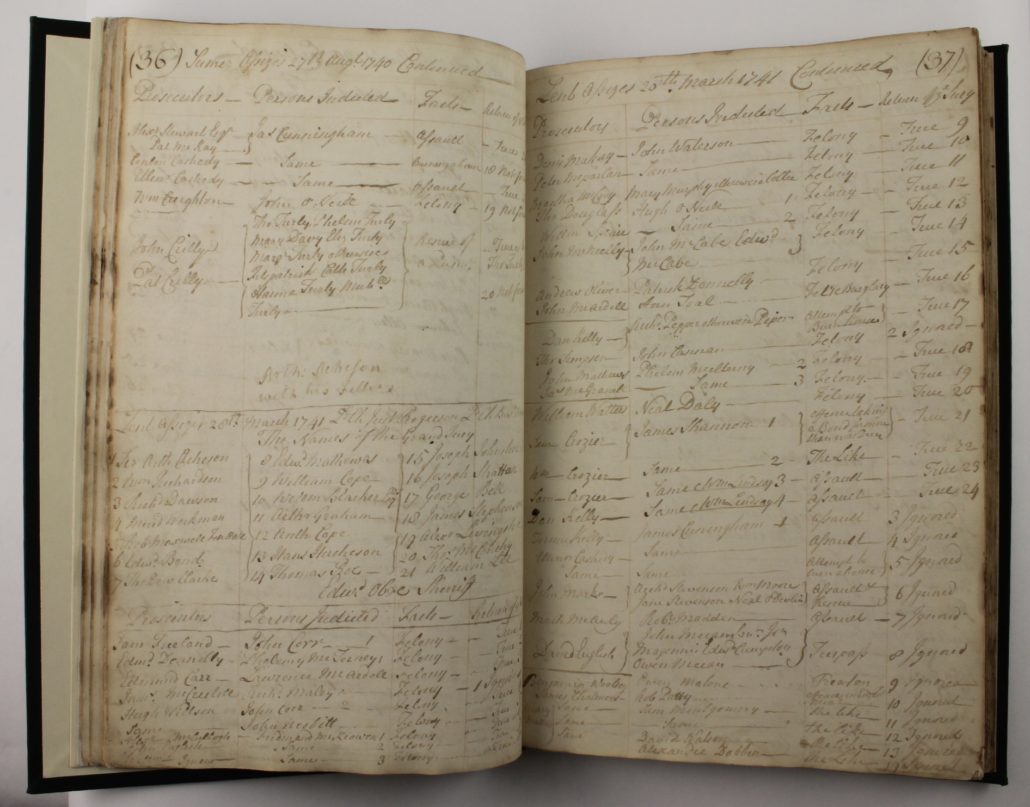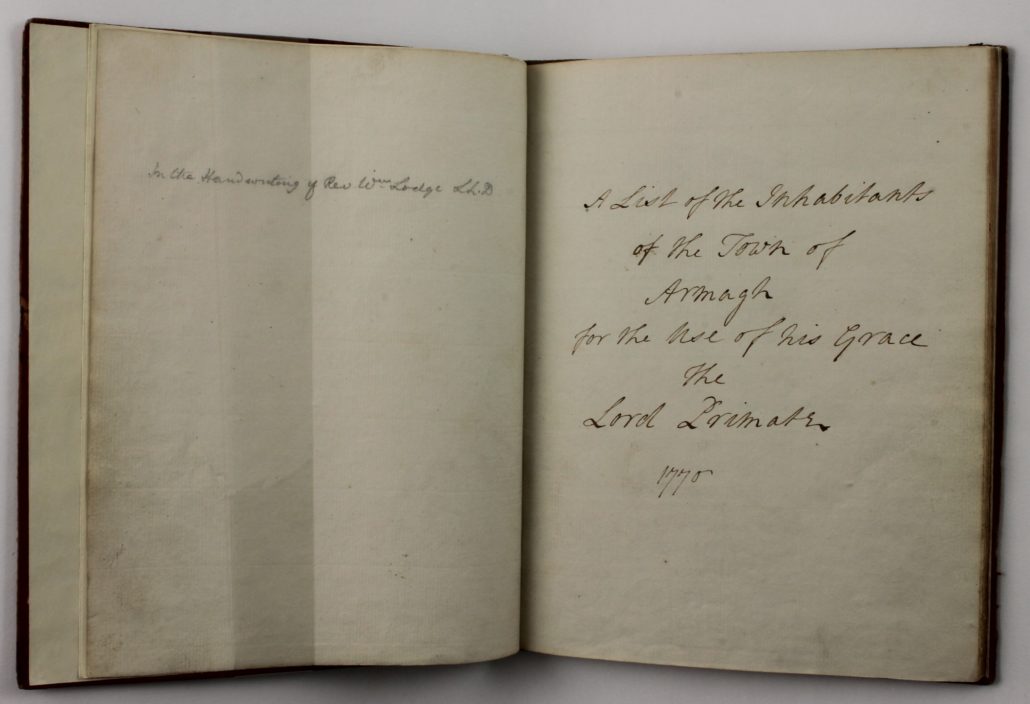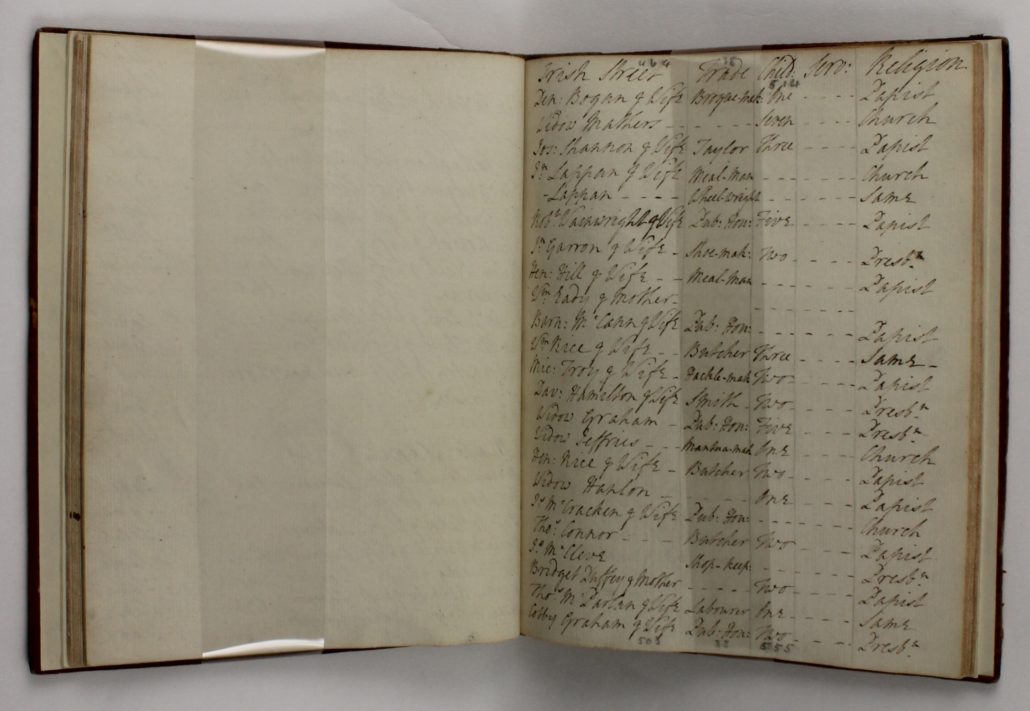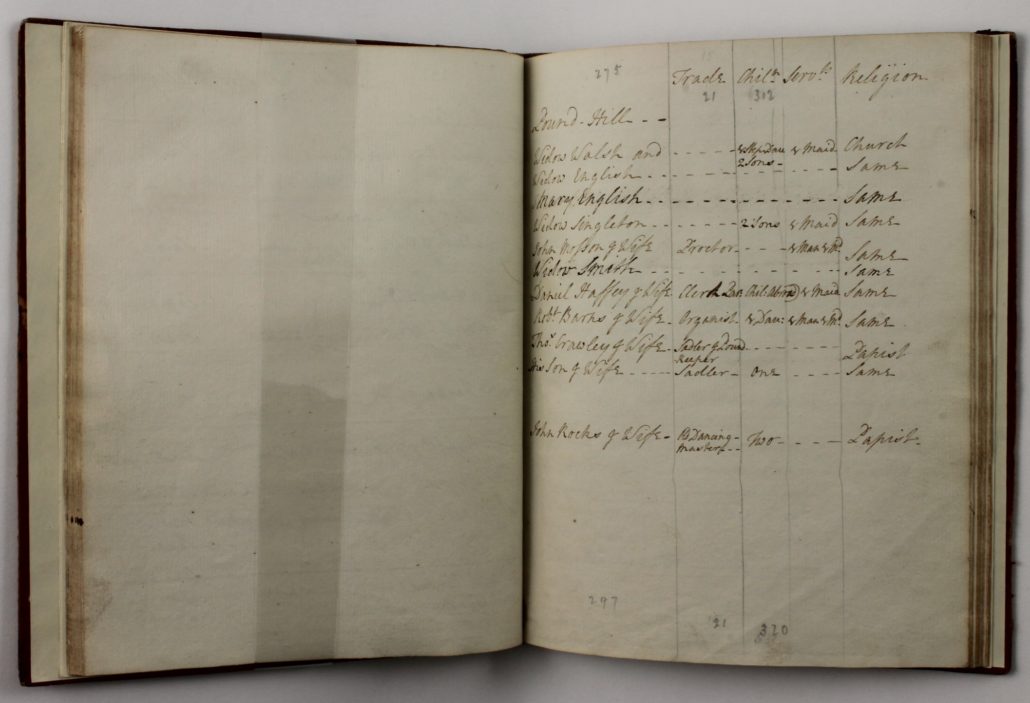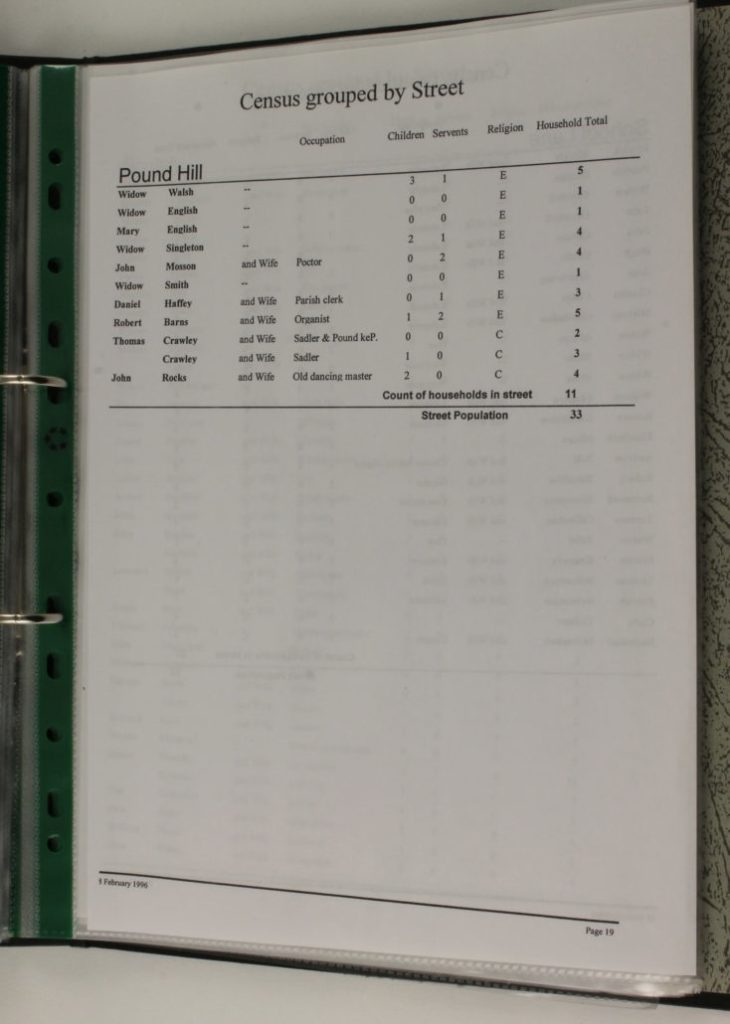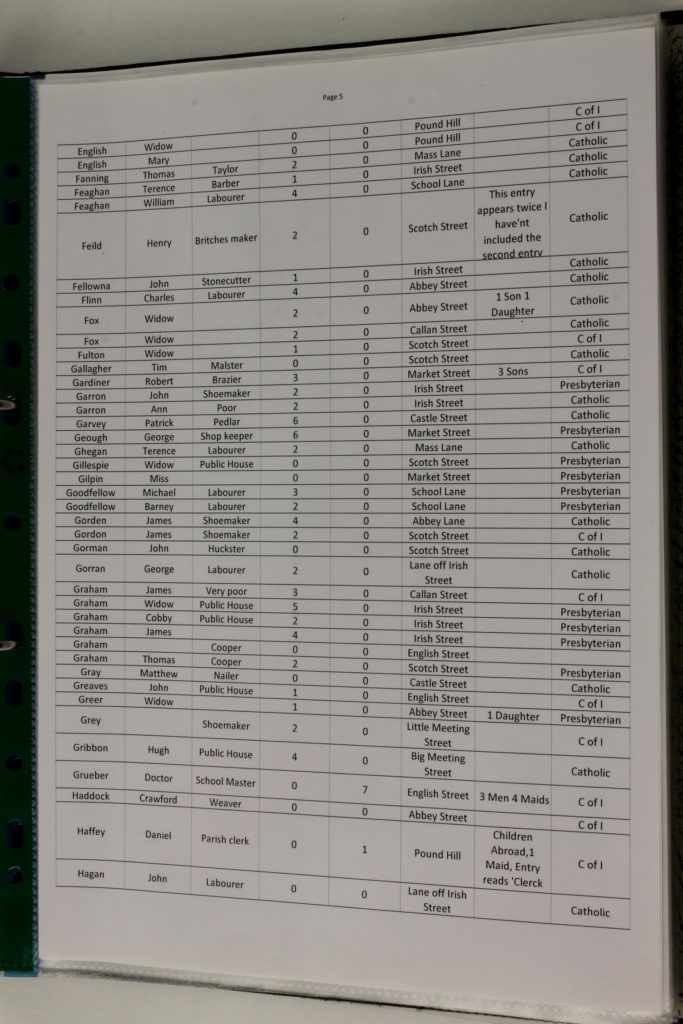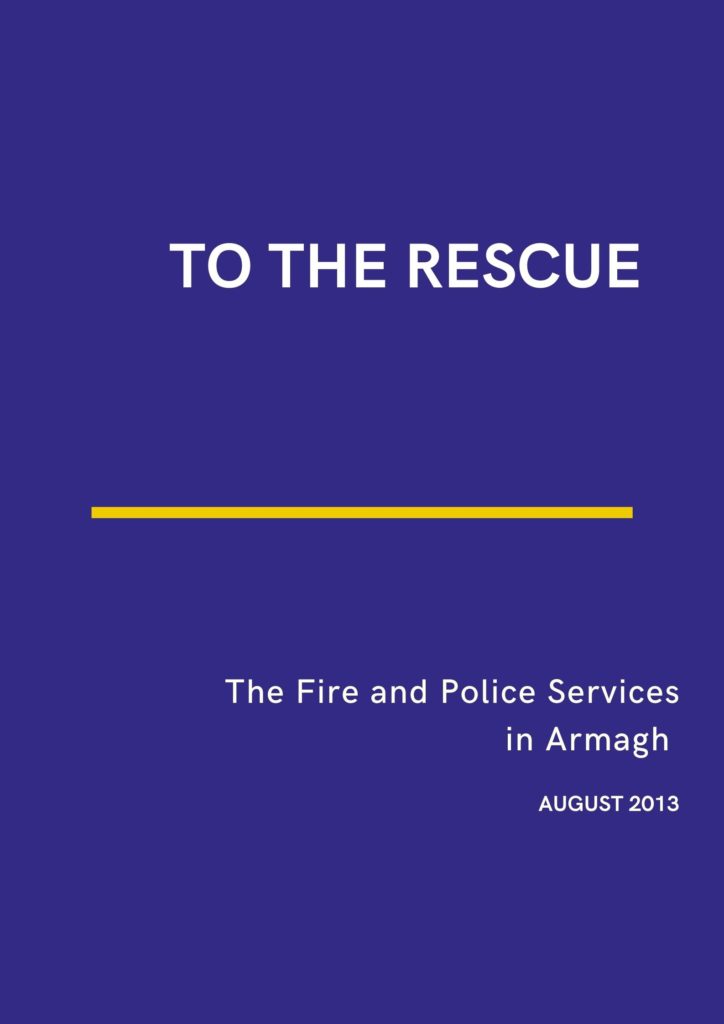
This exhibition highlights sources from our collections which give an insight into the history of Armagh fire and police services, as well as into the history of law-making and law enforcement in general.
This exhibition was held to coincide with the World Police and Fire Games 2013.
The Armagh Corporation was the local authority, from 1613, consisting of a sovereign and a grand jury. The Corporation appointed, paid, rewarded, fined, and dismissed police officers. It was also responsible for bringing the first fire engines and crews to the city at the end of the 18th Century.
The Corporation Books describe the many decisions taken by the Corporation and the monies spent on Fire and Police Services.
Fire Services Entries
29th January 1787: We present the sum of Four pounds nine shillings and four pence half penny to be paid to the Treas.r to be by him paid To Messrs Wm Cochran, John Mosson and James Waugh, to have the Fire Engine put into compleat Order.
27th February 1788: We present James Waugh as a fit and proper person to be fire Engine keeper of this City and we present him the yearly salary of Five pounds for working said Engine and keeping it in proper repair. Said salary to commence the first day of August last.
11th March 1795: We present the sum of £5.7.3 to be levied as aforesaid and paid to Mr George Barnes to provide a leather pipe, 33 feet long, for the use of the Fire Engine of this town.
Police Services Entry
15th November 1784: We present that every Stallion that shall be rode or lead for show into the Market Street or other streets of this town on a Market day or Fair day from the hour of nine o’ clock in the morning to six o’ clock in the evening shall be seized and kept in custody by the Town Sergeant or such other persons as the sovereign shall direct and authorise until the owner thereof shall pay or cause to be paid to [.] Sovereign the sum of Ten shillings for every such offence which Sum or Sums are to be disposed of for the use of the poor of this Corporation as the Sovereign & Grand Jury shall direct.
1st August 1792: Resolved by the Sovereign and Grand Jury that Mr. Thomas Greer High Constable and Mr. William Geough Constable of this Corporation have exerted their valour in the Execution of their Office and have received great injuries and abuse in the Execution of their said office and it is resolved that they and each of them shall be supported in prosecuting such offenders who have assaulted them at the expense of this Corporation.
Click on the image to view a stand-alone version.
Armagh Corporation Books, 1776-1814, 1818-1839 P001616524
In the late 1790s and early 1800s the Armagh Corporation was also responsible for providing piped water to almost every street in the town. A large water basin was built for this purpose on the hill where the Orchard Centre Swimming Pool is today. The piped water was of great help to fire fighters and to the improvement of the service.
The Armagh Pipe Water Book contains 155 contracts between the Corporation and house occupiers. The contract shown is dated 3 August 1796 and concerns the Armagh Public Library.
[…],
it is this Day agreed by and between Arthur Jacob Macan Esq. Sovereign of Armagh, the Revd Thomas English and the Revd Daniel Kelly being three of the Commissioners authorized by said recited Acts, to agree with the Occupiers of Houses in said City of Armagh for laying Pipes to supply the Houses of such Occupiers with water of the one Part, and the Revd Dr Lodge who is now the Occupier of a House in said City of Armagh, situate, lying and being in Abbey Street
[…]
Do hereby engage, that the Commissioners by said Acts appointed, for supplying the Inhabitants of said City of Armagh with Pipe Water, shall for ever hereafter supply the said House, now occupied by the said Doct. Lodge, being the public Library founded by ye Late Lord Primate
[…]
Armagh Corporation Pipe Water. Names Of Citizens Who Took Pipe Water From August 12, 1796 to December 12, 1828 P001616516
The Armagh Assizes was a higher criminal court wher the accused of more serious criminal offences, were brought to trial.
The assize books in the Library list the cases that came to court. It names the prosecutor, the person indicted, the facts, and the return of the Jury. A case indictment was considered by a grand jury. The return, or verdict, could be either a “true bill”, vera, or “no bill”, ignor.
Manor courts were held up to the early 18th Century in the manors of Artrea, Armagh, Donaghmore and Termonfeighen. The Court Rolls contain lists of jurors attending, those fined for non-attendance, and the names of plaintiffs and defendants.
Manor Court Rolls, Artrea, Armagh, Donaghmore, Termonfeighen, 1626-1627: Armagh Manor Court Roll, 10 October 1625, 16 April 1626,16 October 1626 P001594040
In 1770 the Rev. William Lodge compiled a census of the population of Armagh on behalf of Archbishop Robinson. It lists the names of the heads of households, their place of habitation within the town and their occupations.
Nearly two thousand people were recorded living in Armagh, including the town sergeant, Richard Lutton. He lived with his family in Little Meeting Street (thought to be Abbey Street). This is just a short distance away from the Cathedral.
A List Of The Inhabitants Of The Town Of Armagh For The Use Of His Grace, The Lord Primate, 1770 William Lodge P001594288
In 1996 Sean Barden of the Armagh County Museum, analysed all the census data and created notes.
The notes include
- an alphabetical index of all the inhabitants,
- records sorted
- by streets,
- by religion,
- records specifically referring to
- widows,
- wives,
- the poor,
- the pubs.
Notes on the 1770 Census of Armagh Sean Barden Armagh 1996 P002384481
Other sources from the collection
- Account Of The New Method Of Extinguishing Fires By Explosion And Suffocation, 1744
- Ireland’s first 24/7 emergency fire service// History Ireland, Vol. 19, no 1
- From Light Infantry To Constabulary: The Military Origins Of The Irish Police, 1798-1850 // The Irish Sword, Vol. XXI, no 84
- Police And Policing In Ireland, 1987
- Report Of The Advisory Committee On Police In Northern Ireland, 1969
- The Courts, Crime and The Criminal Law In Ireland 1692-1760 / Neal Garnham. – Blackrock : Irish Academic Press, 1996

